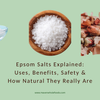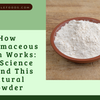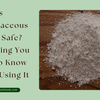A Taste of Tradition: Dried Mulberries in British Cuisine
- by K V
Dried Mulberries in British Cuisine
If you're a proper foodie who loves all things typically British, you'll want to get your hands on some dried mulberries quickly.
These chewy little berries have been adding rich, fruity bursts of flavour to classic British puds and bakes for ages.
Mulberry Through Time
Believe it or not, mulberries have been hanging around Britain since the Romans brought them over in the 1st century AD.
Back then, mulberry trees were rockstars, not for their fruit, but for their leaves! Queen Elizabeth I herself tried to turn Britain into a silk powerhouse using mulberry leaves to feed silkworms. While the silk industry fizzled out, mulberries found a new purpose: becoming a delicious addition to traditional desserts.
Top traditional British dried mulberry recipes
Mulberry Crumble
No proper list of classic British puddings would be complete without a piping hot, comforting crumble. This rustic dessert became a real favourite with families after the war who wanted to make the most of whatever fruit was in season.
Using mulberries gives this humble crumble a rich, deep berry flavour with hints of earthiness. The dark purple colour also makes for a right regal-looking pud when it bubbles up under that crisp, buttery topping.
Mulberry Crumble Recipe:
Ingredients:
- 500g mulberries
- 100g sugar
- Juice of 1 lemon
- 150g plain flour
- 100g cold butter, cubed
- 50g demerara sugar
Method:
- Mix mulberries, sugar and lemon juice in a pan. Simmer for 10 mins until juicy.
- Rub flour and butter together until crumbly. Stir in demerara sugar.
- Pour mulberry mixture into an ovenproof dish and top with crumble.
- Bake at 180°C for 30 mins until golden and bubbling.
Mulberry Jam
If you've got a sweet tooth, you'll go gooey for a spoonful of thick mulberry jam slathered over hot buttered toast or crumpets. This deep purple jam has been a must-have in British kitchens for centuries, going back to when fruit preserves were a way to keep summer fruits for longer.
Modern recipes still use the old way of gently simmering the ripe berries with sugar until they break down into a glossy, syrupy jam. The unique tart-yet-sweet flavour of mulberries is a real treat when spread over warm scones or sponge cakes.
Mulberry Jam Recipe:
Ingredients:
- 500g mulberries (fresh or frozen)
- 500g jam sugar
- Juice of 1 lemon
Method:
- Put mulberries and lemon juice in a pan and mash lightly.
- Add sugar and stir over low heat until dissolved.
- Turn up the heat and boil hard for 10 mins until the jam sets when tested.
- Pour into sterilised jars and seal.
Mulberry Vinegar:
For a tangy twist, try this sticky-sweet mulberry vinegar. This deep-coloured, fruit-vinegar has been used to add a flavour punch to all sorts of savoury British dishes since the 1700s.
Nowadays, you might find mulberry vinegar drizzled over roast meats or game as a sweet-sour glaze. It also makes an unexpected yet tasty addition to salad dressings or vibrant chutneys for your bread or cheese. A few drops can even liven up a boring glass of cordial or spritzer. Tart, tangy, and totally moreish.
Mulberry Vinegar Recipe
Ingredients:
- 115 g dried mulberries
- 1 tbsp. manuka honey or sugar
- 2 cups plus 2 Tbsp. (500 mL) purified water
- 1 tbsp. live organic apple cider vinegar with its mother
Method:
Step 1: Initial Fermentation
- Sterilise two 32-ounce glass jars.
- Prepare: In one jar, add mulberries and honey or sugar. Cover with purified water, leaving 1 inch of space from the rim. Stir gently.
- Ferment: Partially cover the jar with a lid to allow gas to escape. Set aside at room temperature (60-80°F) for 5-10 days until bubbles form.
Step 2: Secondary Fermentation
- Strain the fermented mixture into the second sterilised jar.
- Add apple cider vinegar and cover with cheesecloth secured by twine or a rubber band.
- Ferment: Keep at room temperature. Check pH weekly until it reaches 2.5. A “mother” will form on the surface, and the liquid will smell sour and rosy.
Bottle: Discard cheesecloth, strain the mixture, and seal with a plastic lid.
Step 3: Ageing
- Store in a cool, dark place for at least six months.
- Use after six months for culinary purposes or after five years for drinking.
Enjoy your homemade mulberry vinegar!
Mulberry Gin
Speaking of drinks, you can't call yourself a true British boozer until you've sipped on a snifter of mulberry gin. This luscious, ruby-purple spirit became really popular in posh drinking dens in the 1800s when exotic fruits were in fashion.
The strong flavour of dried mulberries gives this gin a rich, juicy fruitiness that's perfectly balanced by its warm spicy notes. Serve it neat over ice for pure indulgence, or with a crisp tonic and lemon for a classic G&T with a heritage twist.
Mulberry Gin Recipe
Ingredients:
- 500g mulberries
- 1 litre gin
- 200g sugar
Method:
- Put mulberries in a large sterilised jar. Pour over gin.
- Seal and leave for 4-6 weeks, shaking occasionally.
- Strain out berries and stir in sugar until dissolved.
- Pour into bottles and enjoy!
The Evolution of a Tradition: Where Did the Mulberries Go?
So, why did these little gems fade from the mainstream menu? A few things happened. Global trade brought exotic fruits to our doorstep, making mulberries seem less special. Plus, with a focus on commercially viable crops, mulberry cultivation declined.
But guess what? There's a mulberry revival happening! Farmers' markets are seeing a return of fresh and dried mulberries, and food lovers are rediscovering their unique flavour.
Bottoms up!
So there you have it – a little taste of how the humble dried mulberry has been adding its unique fruity flair to British cuisine for ages. While recipes and tastes may have changed over time, these berries remain an iconic part of our food heritage worth celebrating.
Whether you fold them into a bubbling crumble, slather their jammy goodness on a fresh scone, or even get a little merry on mulberry gin, you're keeping an age-old British food tradition alive.
- Posted in:
- blog
- Dried Mulberries
- maven wholefoods
- natural foods
- Organic Farming
- Recipes
- sugar
- Vegan
- Vegan food
- whole foods





